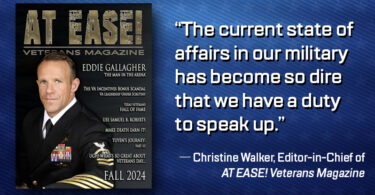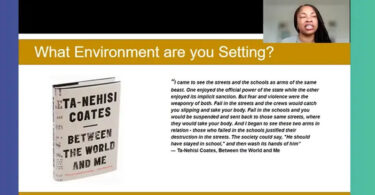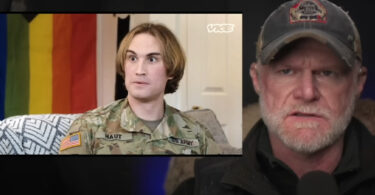U.S. Army Special Operations Command recently release a survey report called, “BREAKING BARRIERS: Women in Army Special Operations” which aimed to identify the challenges to women serving as Special Operation Forces (SOF) soldiers in the Army.
One quote labeled SOF as “the most masculine community on earth.”
You can read the 106 report here: https://www.soc.mil/wia/women-in-arsof-report-2023.pdf
Reading through this feels like a soap opera. We’re not sure the Russian or Chinese special forces have such drama.
Before examples are shown, here’s how the diversity agenda negatively affects the SOF women. From the report:
Don’t Put Women in Jobs Just because they are Female. Women continually insist that female Soldiers should only fill key positions for which they are fully-qualified.
One senior NCO explained that “sometimes you get put in positions because you’re a female,” which tends to make all women appear less competent if that individual is underqualified for the position, as men tend to generalize all women based on the actions of few.
A junior NCO summed this up by stating “the solution isn’t to just throw numbers of women into positions, please don’t lower the standard.”
Additionally, some women feel that the focus on Diversity and Inclusion is contributing to this predicament as senior male leaders may be receiving pressure to diversify senior positions with Soldiers lacking the requisite skills, knowledge, and experience—as one officer explained “diversity and inclusion is making some things tougher for women, because they need to check the box and they fill positions with women.”
If women begin to internalize a belief that their selection for key position will be solely based on gender, it places Soldiers at risk for imposter syndrome as one senior NCO explained “the fact that I have question why I was selected is hard.”
The report said, “The findings in this study infer that until all barriers are universally removed, comprehensive integration of women into Special Forces and Ranger career fields will not be possible.”
Here are some of the barriers and situations that just seem odd that the Special Forces have to deal with:
“Many women reported being isolated within their units, especially during deployments where segregated living quarters create an additional layer of isolation. The decision to separately house female Soldiers was often described as a leaders’ attempt to maintain good order and discipline by avoiding perceptions of unprofessional relationships or infidelity; however, most women view it as career preservation for those leaders.
“In addition to isolation, everyday experiences from a woman’s perspective become truly invaluable as women seek advice on topics such as “when should I have a baby?” or “what should I expect if I have my period at SERE school?”
“ARSOF Soldiers reported that time required for planning and carrying a pregnancy to term can negatively affect women’s careers, and women feel pressured to time their pregnancies around significant career milestones or avoid having children to prevent being viewed negatively.”
“Reintegrating into work following childbirth was discussed as one of the most challenging feats women in the military encounter. The Women in ARSOF Survey identified the top five postpartum challenges for women as, (1) postpartum depression, anxiety, and stress, (2) the inability to function at the level of the rest of the unit, (3) lactation, (4) maternity leave, and (5) diastasis recti abdominis.
“Focus group discussions added more context to these barriers such as difficulty obtaining access to pregnancy and postpartum specialists (e.g., OB/GYN, mental health clinicians, lactation consultants, nutritionists, and pelvic floor therapists), hindrances on career progression, lactation room locations, maternity uniforms, fertility concerns, and the events following a miscarriage under 20 weeks of gestation.”
A man’s built-in inclination of wanting to protect a woman is called “benevolent sexism” by the report authors. “Women are being limited because men are trying to protect them.”
Jealous Wives
“Among officers, particularly company grade, exclusion from casual conversations and social events due to their male coworkers’ jealous spouses creates an environment of isolation with compounding negative effects on the unit and mission. Reports of spouses approaching female officers demanding they refrain from calling or text messaging their husbands outside of duty hours were common.”
“My team didn’t use my first name and I didn’t know why. I went to a unit function and one of the girlfriends said oh you ’re [last name] with surprise. I asked my team about it and they said they call me by my last name so if I came up in conversation, the spouses and girlfriends think I’m one of the guys.” – 01-03
“I was new to [a leadership position] so I tried to have a team building event with families. No one attended because they didn’t want their wives to know I was a woman.” – 01-03
“When I was a lieutenant, I was in a [redacted] unit and if I didn’t make an effort to be friends with the wives, then they assumed I was trying to sleep with their husband.”
Male SOF comments:
“I think you should ask the wives about their position on women in SOF.”
“Wives are comfortable with a Team of men working together overseas. Women add unnecessary complexity to relationships within the workplace and especially on a team.”
“Specifically in regards to Team dynamics, l don’t think that a woman could ever perform so well as to outweigh the challenges presented a team with a woman on it. Most teammates spend more time with each other than they do their own wives—there is no chance that wives would be comfortable with their husbands working late/living with a woman in the capacity teams must to function. I think on a personal level it would introduce incredible issues and potentially disrupt a lot of marriages.”
“If a woman is assigned to my team as a Green Beret, there are several married teammates that would seek employment elsewhere for the health of our marriages.” – E7-E9
“The majority of women explained that living in separate quarters often comes at a detriment to the mission as a significant amount of informal mission planning occurs outside of normal duty hours (i.e., team house discussions). Nonetheless, a desire for men and women to live in the same “team house” was not unanimous as several women emphasized the need for segregated living areas in order to avoid rumors and allegation of sexual misconduct.”
“One participant explained that when she arrived to her unit she was counseled by another female Soldier stating “there are 2 types of women: bitches and whores. Pick which one you’ll be.”
Two of the predominant concerns about clothing, regardless of rank, are “what do I wear to PT?” and “what is wrong with yoga pants [leggings]?” This topic surfaced at each focus group engagement as women described a myriad of events involving wearing yoga pants or leggings while conducting physical training. Participants consistently made it clear that leggings are accepted as normal exercise attire in all civilian fitness facilities, but it continues to be a problem with male Soldiers and leaders.
Accounts of women “getting called out ” for wearing leggings were countless, all with similar narratives of distraction and appropriateness. In contrast, the number one retort to the accusations of “revealing too much ” or “showing off your body” is that men habitually, and exclusively in some units, wear “ranger panties ” (often times without a shirt) for physical training and during the duty day, essentially a “duty uniform.”
One senior NCO who no longer wears leggings to her place of duty due to sexual comments about her body gave the following example of what she refers to as the “double-standard”:
“A Master Sergeant asked me to come by his office and discuss a presentation I was working on. When I arrived he was standing there in his ranger panties and as I was talking, he intentionally propped his leg up on the desk so I could see everything. He proceeded to tell me that he has slept with the same [MOS removed] Soldiers as myself.”
Some women complained they can’t take the Jumpmaster course in furtherance of their careers because they are too short.
A “Queen Bee” section talks about women who’ve gotten ahead don’t help women below them because of competition, jealousy.
Large body armor doesn’t fit right on women.
Helmets don’t fit right over ponytails, braids or hair buns. The resulting forward tilt limits visibility. “I can fix it on the range eventually, but what happens if I actually need to return fire?” -E1-E4
Ponytails or braids could get entangled in line twists during parachute jumps.
Lack of a female bladder relief.
“The MOLLE ruck system is problematic for most women under the height of approximately 5 feet, 5 inches. Primary concerns include the size of the frame, weight distribution limitations, straps being too wide, and lack of sufficient points of adjustment to accommodate small-stature Soldiers.”
Central Issue Facility lacking smaller size equipment for smaller framed women.
Lack of 24 hour childcare facilities. “Sometimes I just have to bring my 7 year old to work.” –WO
“I’m afraid to have another kid because it will end my career. ” -E5-E6.
“I put my career first so that I could be successful.” -04-05
“Military systems in general are designed for the service member to have a stay at home spouse.” -04-05
Deployments
“I don’t have any friends because all my co-workers are married men.”
“We need something for women deploying alone. Who do you talk to when you’re deployed? There’s a negative perception. For example, I was deployed with one other women and they put us on opposite shifts so they didn’t have to provide two rooms and it isolated us; we never saw each other. She was having a hard time and was hanging out with a male and they said it was inappropriate. They said there had to be a third person when they were alone and if she needed someone to talk to, she could go to mental health. Then they threatened the male, saying “you’re risking your career if you continue to engage with her”.
“When I deployed, I wasn’t allowed to stay in the team house so I was in a different location down the road. My team didn’t communicate with me and I didn’t know what was going on most of the time. One time there was an afterhours meeting for a mission the next day and the departure time was changed. No one told me – they left me behind while they went on the mission.”
“I work with a lot of men so there’s no social support. They might ask if I want to grab a beer but that’s it. My XO is a female but she’s an officer, so I can’t fraternize.”
“I had bonds and friendships in Korea but not here. I sit and hear everyone talking and making plans right in front of me. They are warned not to hang out with me to avoid perception or consequences.” EI-E4
“No one (men) would talk to me for the first three months I was here. People are so unapproachable.”
“It’s hard for women. It’s very isolating on the compound.”
Working, SHARP
“I want to get a mentor but there’s a perception that I’m trying to sleep with them.”
“I don’t want mentorship from women who sleep with everyone.”
“This unit culture was described as excessively chauvinistic and sexist where women are present for the enjoyment of the male service members, as several senior service members clarified with statements such as “the junior females are not safe here and “we [seniors] hare to protect them.”
“A company grade officer explained an ongoing situation in her unit – “I’m new to the unit but since I’ve been here there seems to always be male captains sitting beside my desk talking to me. My Soldiers keep asking which one I’m dating, I’m not dating anyone, and they are just interfering with me doing my job.”
“The SHARP Program has made me hesitant to talk to members of the opposite sex without other individuals present to serve as witness. This is particularly true as an instructor, where I must provide feedback to females. I am afraid that if I fail a female who fails to meet the standards, she can end my career by claiming SHARP.” – 03-04 (Male Service Member)
“The training hasn’t made me afraid to interact with other Soldiers, but it has made them afraid to interact with me.” -01-02
“I think today’s SHARP program is increasing a potential adversarial relationship between men and women. Where men feel afraid of women in their spaces because of the risk a complaint poses to the mission and their career.” – 03-04
What SOF men are thinking (quotes from report):
“Females have no place on a Team. It’s an unnecessary wrench in a perfectly functional system in the name of political correctness. This trend is another factor that has systematically blunted the tip of the spear.”
“I dread the day a woman arrives on a Team and I hope I am retired by the time that happens.” – Male, E7-E9
“There are opportunities for women in SOF, but not on a Team or in a team house in a remote location in third world shit holes. We have enough problems and don’t need females to make more.” – Male, W1-W3
“I’ve already said it: (1) Women should be welcomed, respected, trusted and cherished as ARSOF team members but should not be SF or RGRs; they should be respected auxiliaries. Women should never command SF or RGRs. (2) The day you put a transgender in my chain-of command is the day I drop my retirement papers. I hope you then reap all of the ramifications of such moral depravity, enabling of psychosis and political cowardice.” – Male, Civilian
“I have decided to retire so I don’t have to lead a Team containing a female.” – Male, E7-E9
“Woman in 18 series MOSs are/will not be welcomed on a Team.” – Male, 03-04
“The idea that women are EQUALLY as physically, mentally and emotionally capable as men to effectively perform the majority of jobs within ARSOF is, quite frankly, ridiculous.” – Male, E7-E9
“Ask all of the support women that ASK to go to SOF units. Do you think they are pursuing career opportunities? Please. Be honest with yourselves. They are looking for a husband, boyfriend or attention. And they get it. Because the men that choose to lay down their lives and do missions that only great men can do are warriors. Warriors do warrior shit. Women like warriors. These are the facts. Play pretend in your circus all you want, this is truth. I know this won’t get read because it will be screened beforehand, so whatever. I will just retire and watch my country fail right after I watch my unit fail.” – Male, E7-E9
“If I have to go on a PDSS to some random country with one other member of my team and that other member happens to be a woman, what kind of image do you think that represents? How do you think my wife would feel? How would your wife feel? If our morality as SOF Soldiers is supposed to be ABOVE REPROACH, how are we supposed to send that message when YOU are responsible for putting us in situations where it’s impossible to send that message? I’m not saying that it is impossible to be moral. I’m saying that it ‘s impossible to come back to my unit and people not have some thoughts about what might have gone on during the PDSS. If you think that it’s the unit’s responsibility to NOT send a man and woman alone on a PDSS, then you just answered your own question of “do women belong in ARSOF”. Our job is to be the MOST LETHAL fighting force in the world. NOT the most inclusive. Let’s focus on lethality for once.” – Male, E7-E9








Leave a Comment